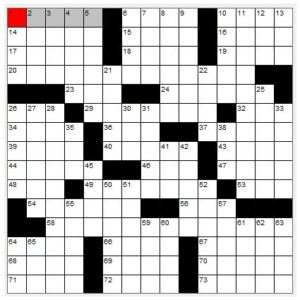 I find my blog to be a very useful teaching tool. It’s full of resources for students to explore, and after doing so they often follow up in class with interesting questions and comments. The blog helps extend our mathematical conversations beyond the classroom. Sometimes, it works too well.
I find my blog to be a very useful teaching tool. It’s full of resources for students to explore, and after doing so they often follow up in class with interesting questions and comments. The blog helps extend our mathematical conversations beyond the classroom. Sometimes, it works too well.
In a recent discussion on probability, we considered the following question:
Suppose you randomly choose a positive integer. What is the probability that the number you choose is divisible by five?
The students thought about the question and discussed their ideas. I asked for their thoughts. The usual good answers came out ( as well as at least one bad one (infinity!?). I asked students to explain their reasoning, and an eloquent student sitting in the back volunteered to defend his answer.
as well as at least one bad one (infinity!?). I asked students to explain their reasoning, and an eloquent student sitting in the back volunteered to defend his answer.
“The answer is zero,” he said. “Although there are infinitely many multiples of five and infinitely many total integers, the probability is zero because a small infinity divided by a big infinity is zero.”
“A small infinity divided by a big infinity is zero?” I responded, trying to appear as perplexed as possible. “That sounds kind of crazy to me. What does that even mean?” I tried to stir up the anti-zero sentiment in the room.
The student persisted. “According to you, a small infinity divided by a big infinity is zero.”
“That doesn’t sound like something I’d say,” I said, which is what I say when students remember something I wish they hadn’t. I usually get away with it. Not this time.
“You didn’t say it,” replied the student. “You wrote it on your blog.”
In a rare moment, I had no response. What could I say? I did write it on my blog. I had nowhere to hide.
The class celebrated this clear and decisive victory.







